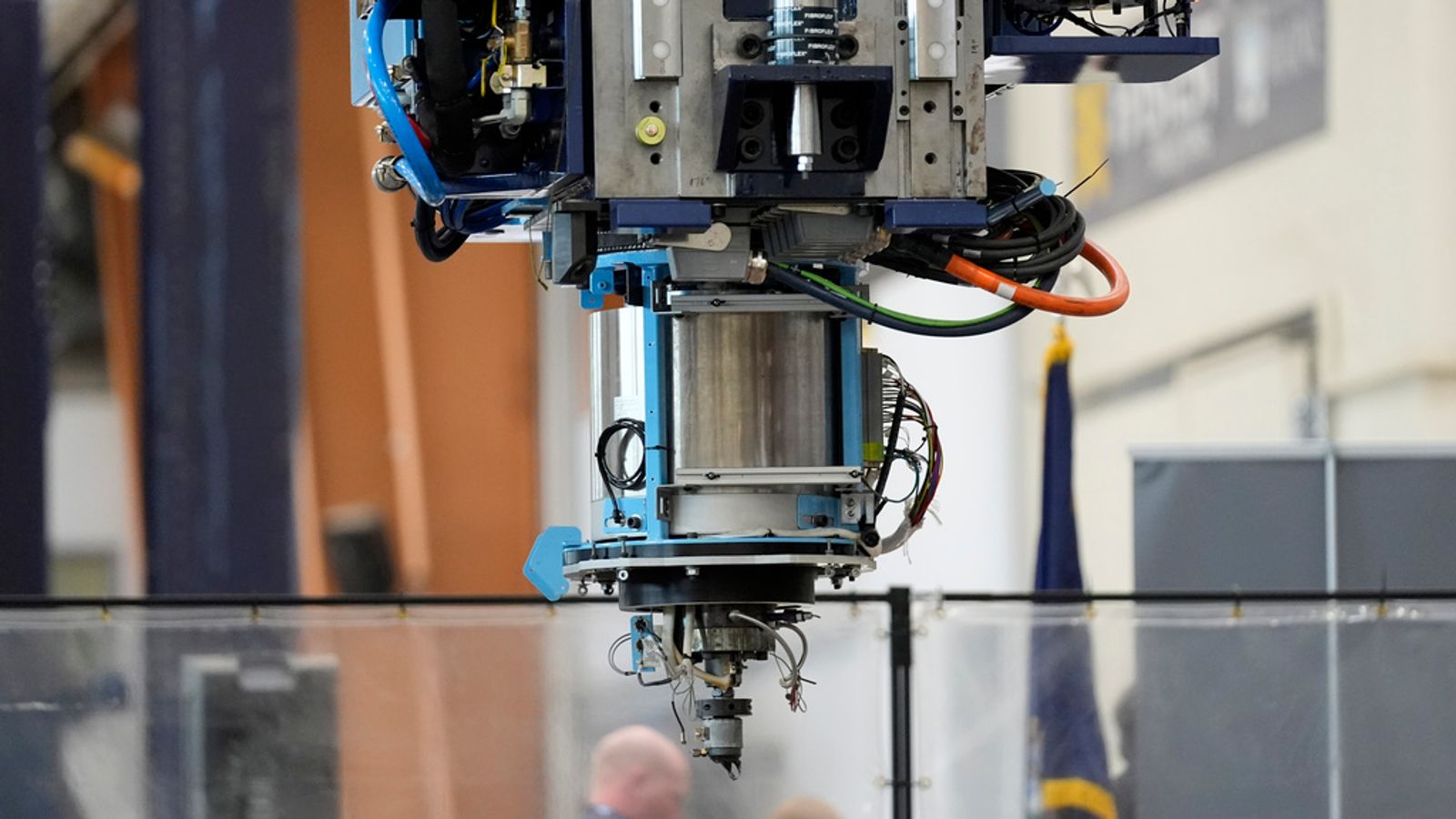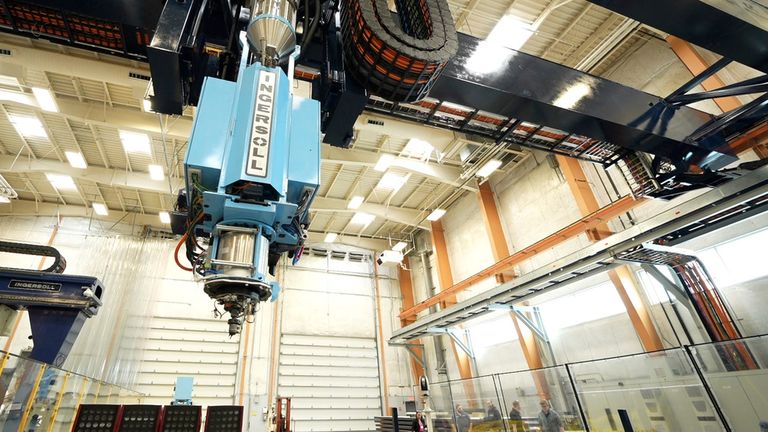World
World’s biggest 3D printer unveiled in US will make entire recyclable neighbourhoods, say officials

The world’s biggest 3D printer has been unveiled in the US – and will be able to create new neighbourhoods of affordable housing to help tackle homelessness, officials have said.
The machine, called the Factory Of The Future 1.0, has been built on the campus at the University of Maine and combines artificial intelligence with robotics operations and high-performance computing.
Government officials said the printer exceeded their expectations and “stands as a beacon of innovation” – while US senator for Maine, Susan Collins, said it was a “great day for our university, our state, and our nation”.
The campus is also home to the 2019 Guinness World Record for the largest polymer 3D printer, which can also create homes – but the new machine is said to be four times bigger.
The university wants to show how homes can be constructed nearly entirely by a printer with a lower carbon footprint.
It said it allows them to escalate 3D-printed home technology using bio-based materials to eventually print neighbourhoods of affordable housing to address homelessness in the region.
If buildings are not suitable, they can be recycled, officials added.
Habib Dagher, director of the university’s advanced structures and composite centre, said: “You can basically deconstruct it, you can grind it up if you wish, the 3D printed parts, and reprint with them, do it again.”
The buildings and construction sector accounts for roughly 37% of global greenhouse gas emissions, mostly due to the production and use of materials such as cement, steel and aluminium which have a significant carbon footprint, according to the United Nations Environment Programme.
Read more on Sky News:
TikTok ban in US moves a step closer
More than 100 arrested at New York University
The printer will be able to produce objects as large as 96-foot long and 32-foot wide, with a height of 18 feet.
Dr Dagher said there is a shortage of both affordable housing and workers to build homes – Maine is said to need another 80,000 homes over the next six years.
But the machine’s production speed of 500lbs (227 kilograms) of material an hour means it will be able to create new homes at a good rate.
The university said the printer offers “new opportunities for eco-friendly and cost-effective” manufacturing for numerous industries.
These include national security, affordable housing, bridge construction, ocean and wind energy technologies and maritime vessel fabrication, it added.










